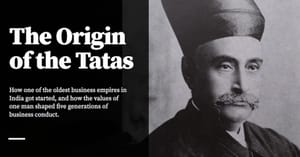Competitive advantages in business that come from cultural differences tend to be counter-positioning, not process power. Why this is surprising, and why it matters.
In the The Most Useful Question to Ask About Expertise I talked about a specific approach to software marketing, sometimes called ‘growth’ or ‘full-stack marketing’. I described the approach because I needed a real-world example where I could illustrate expert-novice differences.
I wrote:
(Patrick) Campbell is talking about a specific kind of approach when he says ‘growth person’ or ‘full stack marketer’. He’s referring to the idea, starting around 2016, that marketing for software businesses is fundamentally different from marketing in other industries, and that the frameworks and names need to reflect this shift.
The basic narrative goes something like this: in the past, product folk would develop something to sell and marketing folk would try and figure out ‘distribution’ — a fancy way of saying “spreading the word to the people who are most likely to buy the thing”. The model most commonly used to think about this dynamic is that of the buyer’s journey, and marketing’s job is to shove potential buyers down some funnel that is aligned with the buyer’s journey: first you have an uninformed, unaware person, and then they become aware of some pain they have, and then they realise that the pain is solvable, and then they think “hmm, maybe I should go buy something to make the pain go away”, and then they start comparison shopping, and then eventually they pick you and give you money. But Balfour and Campbell and others like them argue that funnels aren’t the right way to think about growth in software businesses today, and that growth teams that work on the most successful software businesses don’t find the funnel model as useful.
What do they use then, if not the funnel? The answer: they think in terms of growth loops.
(…) A marketing person who thinks in this way must be able to change model, channel, product, and market, which means they operate in a different space from typical marketers (who are usually given a fixed product, a fixed model, and a fixed market, and are asked to execute on some set of channels — though some lucky marketers are given the opportunity to redefine the market).
What I didn’t tell you was the story of this approach — that is, how and why the marketers at Reforge came up with ‘growth marketing’ in the first place. I want to tell you that story today, and then generalise from the approach to something more useful: that is, competitive advantage that comes from organisational structure or complex incentives must necessarily be a form of counter-positioning.
Originally published , last updated .
This article is part of the Market topic cluster, which belongs to the Business Expertise Triad. Read more from this topic here→





